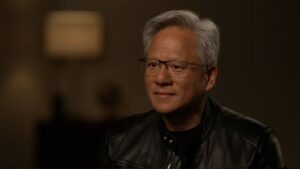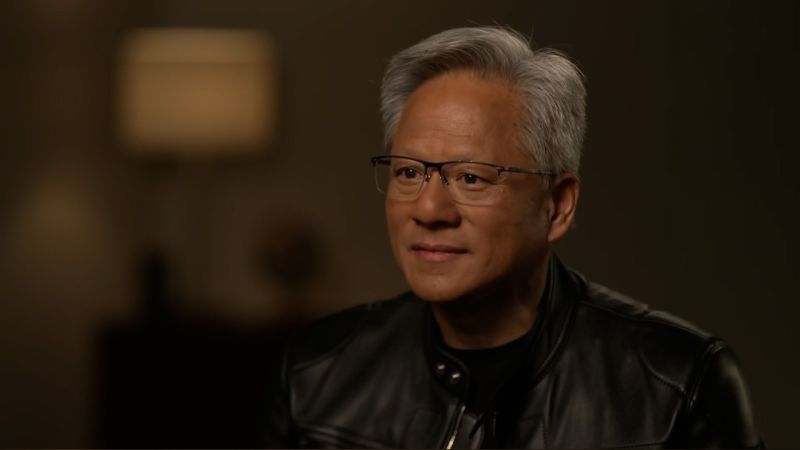In a recent interview with CNN’s Fareed Zakaria, Jensen Huang, the CEO of Nvidia—one of the most prominent names in AI chip manufacturing—expressed strong support for America’s initiatives to “re-industrialize” its technology manufacturing sector. Huang firmly believes that this approach is not only necessary but also timely, as he identified a critical gap in U.S. industrial capabilities that needs to be filled. He articulated his vision for fostering manufacturing skills within the nation, emphasizing that the ability to create tangible products is vital for economic development and the establishment of a stable society. This sentiment reflects a pressing need for the U.S. to re-engage with its manufacturing roots and encourage a workforce equipped to innovate and produce.
Huang’s comments come amidst a backdrop of various efforts by the Trump administration to rejuvenate the U.S. manufacturing sector, particularly targeting the automotive and energy domains. These policies, which include imposing significant tariffs, have been framed as necessary measures to reduce America’s over-reliance on overseas manufacturing, especially concerning crucial technologies like semiconductors and chips. The White House has taken a strong stance on these matters, with press secretary Karoline Leavitt stating that the U.S. cannot depend on nations like China for the production of critical tech components.
Further emphasizing the importance of reshoring production, Huang noted that relocating manufacturing jobs back to America would alleviate pressure on Taiwan—home to the Taiwan Semiconductor Manufacturing Company (TSMC), the largest semiconductor manufacturer globally. This shift is timely, especially as TSMC has pledged a substantial investment in U.S. semiconductor manufacturing, aiming to bolster local industries and reduce dependency on foreign entities.
Despite concerns that the expansion of artificial intelligence technologies may lead to job losses—an issue highlighted by a World Economic Forum survey indicating that 41% of employers anticipate workforce reductions due to AI—Huang remains optimistic. He believes that while some positions may be phased out, the emergence of new roles is inevitable, and productivity gains across various sectors will ultimately benefit society. His own company, Nvidia, has been at the forefront of AI advancements, powering major data operations for tech giants like Microsoft, Amazon, and Google.
Regarding AI’s increasing influence, Huang has taken a proactive stance within his organization. He asserts that every engineer and designer at Nvidia is encouraged to harness AI tools, to the point where their usage is practically mandated. This approach positions Nvidia as a leader in integrating AI within product development and operational efficiency.
However, the broader implications of AI technologies have not been without controversy. Huang pointed out the recent turbulence surrounding tools like Grok, developed by Elon Musk’s xAI, which faced backlash for generating inappropriate content due to flaws in its algorithms. Huang addressed these concerns, suggesting that such issues often arise during the developmental stages of AI systems but are manageable as improvements continue.
Looking toward the future, Huang is particularly bullish about using AI in the healthcare field. He foresees a transformative potential in how diseases are understood and treated, emphasizing that AI could assist in drug discovery processes by better understanding biochemical interactions. He envisions a future where virtual scientist assistants could play a pivotal role in medical advancements, ultimately aiming for the eradication of various diseases.
As the technology landscape continues to evolve rapidly, generative models are also paving the way for practical applications in robotics and automation. Huang highlighted ongoing developments in robotic systems that could perform complex physical tasks, suggesting a transformative shift in how AI is integrated into everyday functions—showing tangible outcomes could be just a few years away.
In conclusion, Jensen Huang’s insights illuminate a path forward for American manufacturing and technology industries, underscoring both the opportunities and challenges that the era of AI presents. His endorsement of onshoring initiatives and responsible AI integration promises to play a key role in shaping both economic recovery and innovation in the coming years.









